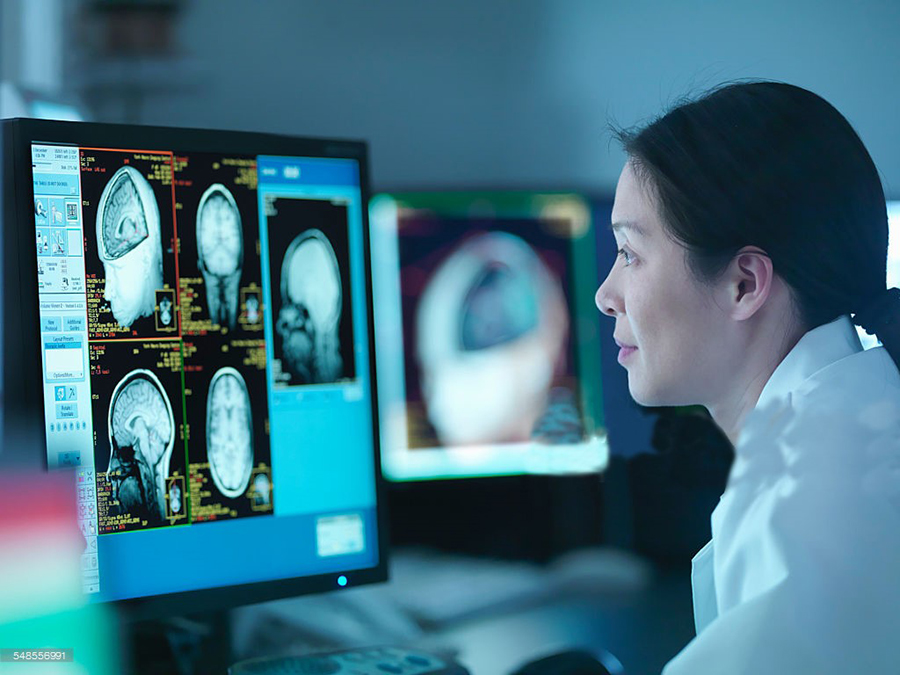In a world increasingly driven by data, there is likely no other industry where information collection, storage and analysis carries such high stakes as in healthcare. Hospitals and medical research institutes generate vast amounts of data — from patient records to test results to research findings and treatment and diagnoses — and how this healthcare data management, storage and retrieval is handled can have a very tangible impact on patient outcomes.
By optimizing the storage, sharing and analysis of healthcare data, Hitachi is helping to improve patients' quality of life while enabling caregivers to streamline their workflows, eliminate redundancies and minimize the possibility of error. Hitachi combines its experience with advanced healthcare solutions and expertise in cloud-enabled IT infrastructure and digital technologies to harness the power of this data more effectively and efficiently.
Here is what you need to know about Hitachi and the future of healthcare :
Medical data collection has come a long way from the paper chart hanging at the foot of the bed. At innovative hospitals nationwide, patient care is informed by a wealth of information: from genetic data and family history to details about lifestyle, personal health and diagnostic history.
Leveraging this information to provide the best possible care at minimal cost is one of the most intriguing challenges of our era, and it’s one that Hitachi’s healthcare initiatives are meeting head-on.

All great doctors know how to read a patient’s chart and quickly sort irrelevant details from the data points that matter. As the amount of data collected has grown exponentially, however, it has become vital for hospitals to find tools that streamline this process.
Data-driven healthcare is still a relatively new concept – that faces challenges typical to the adoption of any new technology — . Poor interoperability, a lack of industry standards, few vendors with adequate capabilities and a lack of intelligent technologies that bring siloed data together. These insufficiencies are more than just inconvenient. They can mean real consequences for patients’ health, wallet and quality of life.
Take the case of reusable and single-use medical devices, which can cause mild or life-threatening infections if not sterilized or disposed of correctly after use. In some cases, these have led to significant lawsuits and damages for original equipment manufacturers (OEMs) and technology users, despite sterilization protocols. Digital technologies like the Internet of Things (IoT) in healthcare could play a transformative role in the future of single-use medical technologies to protect patients and providers.
And that means there will be vast amounts of IoT data that will need to be made available in real time in formats that are accessible and interpretable by users.
On the other hand, forward-thinking data solutions have the real possibility to reduce costs, improve patient outcomes and empower physicians to make decisions quickly and confidently.
The ultimate goal of all healthcare innovation is providing better care and improving patient quality of life. Aggregating data across providers, simplifying decision making through deeper data analysis, highlighting critical threshold data and automating notification of essential results are just a few examples of how effective data management can have a tangible and immediate impact on healthcare outcomes.
The key is smart healthcare data management using cloud modernization, which expands the ability of healthcare organizations to leverage their data and provide unprecedented levels of insight into disease research and treatment to achieve optimal patient outcomes. The adoption of the cloud in healthcare, along with data pipeline automation, has led to a renaissance in the way patients are diagnosed and treated, ushering in digital transformation of healthcare.

To meet these challenges, Hitachi’s innovative healthcare tools, including Lumada, an IoT platform that allows hospitals to automate data management, accelerate data discovery and receive real-time insights – such as predicting when critical equipment will break down before it happens.
Being a pioneer in delivering digital solutions for healthcare, Hitachi is also using IoT technology to connect disposable medical devices that trigger alarms when reused, protecting patients and OEM providers.
Hitachi’s VidiStar Data Mining Software allows hospitals to produce even richer analyseis of their critical report data, while the SONTICUS alert system tracks PACS data and automatically alerts hospital staff if critical points are exceeded.
Recently, a nonprofit organization dedicated to biomedical research and technology has contributed significantly to advances in brain injury and disease research. The institute's IT and data infrastructure challenges required the expertise of specialists in data pipeline automation and healthcare data solutions, including tools for data management, data storage and data security that meet the needs of the healthcare industry. Hitachi's portfolio of cloud modernization, data management and storage solutions has enabled this institute to leverage big data to deliver differential diagnoses and treatments for brain injuries and diseases, bringing life-changing medications and therapies to patients more quickly.
Hitachi’s innovative technology solutions in healthcare are about more than simply automating hospital or medical research work. Each one is thoughtfully and strategically designed to help providers and technology users operate at the highest standard possible while creating an optimal patient experience.
The more widely these technologies are implemented, the closer we will be to a future where every patient’s care is effortlessly tailored to their needs. Technology and data are at their best when they are improving the quality of life of everyone who interacts with it. That type of Social Innovation is what Hitachi is all about.